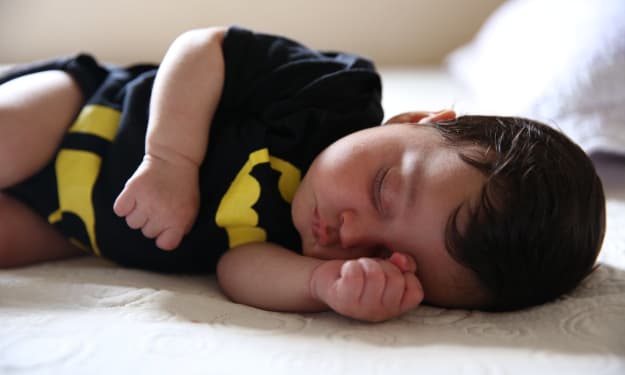
Genealogy Freak
Bio
A mother, daughter, sister and "Star Stuff". I have been a storyteller all my life and obsessed with genealogy nearly as long.. I'm an observer and storyteller by nature. I research the lives of my ancestors and document their stories
Stories (14/0)
The Hanging Tree: A Botched Execution for an Innocent Man- The Story of Evan Hopson
How We Connect My Great-Grandfather Theodore Hopson was the son of John C. Hopson, the son of Littleton W. Hopson and Mary Emmaline Brummitt. Evan Hopson was John C. Hopson's older brother. Evan is my 3x Great-Uncle.
By Genealogy Freak4 years ago in Criminal
Killing RockMassacre: The Story of Doc Taylor and Ira Mullins
How We Connect My great-grandfather Theodore Hopson was the grandson of William Robinette and Luemma Mullins, the granddaughter of James Booker Mullins, Jr. Booker had a brother by the name of Sherwood. Ira was Sherwood's grandson and the son of John L. Mullins.
By Genealogy Freak4 years ago in Criminal
5 Reasons Actors Should Learn a New Language
1. It will help you do more realistic accents. Let's face it. An accent can make or break a film. A bad attempt at producing a British accent could make an actor sound more like they are a deaf speaker at best. The importance of nailing a proper accent is as true for English dialects as it is for foreign ones. You may be thinking, British accent, you say? Easy! Unless you only know Geordie and the script is set in London, where they speak Cockney. Global English speaking countries have varying accents just as numerous as those found in America and anyone familiar with those areas will not be convinced. Film critics may actually be offended by your poor attempt and see it more as mockery. Just as it would not be believable that I was born and raised in New York City if you heard hints of my Hillbilly twang coming through, it also would not be believable that someone had a Spanish background if they couldn't properly roll their "R's" or throw their voice from the back of their throat.
By Genealogy Freak5 years ago in Journal
My Unconventional Approach to Film Acting
Personally, I never memorize a script for film. I do not want to appear rehearsed and too polished to be realistic on camera. Instead, I learn the story and approach the process of acting much in the way we play the game of Gossip as kids: You hear the story, you know what happens to whom and who said what, and then you go elsewhere and repeat it, telling the story to the next person in the most believable manner as possible, even if you make up some of your own parts. I read the script to learn what happened to whom but that's as far as I take the script.
By Genealogy Freak5 years ago in Journal
8 Ways to Make Your Characters Relatable and Like-able
1. Give them a burden. This can be physical helplessness or a mental or emotional disability of a sort. Observing a character battling against their very own shortcoming, wants, or confinements is something every viewer can relate to. When we see someone struggling, we are more apt to get emotionally involved in the story. We concern ourselves with that character and become curious as to how they are going to overcome.
By Genealogy Freak5 years ago in Geeks
8 Biggest Differences Between Stage Acting and Film Acting
I will start by expressing that acting is acting, yet everything you do for stage, you must do just the contrary for film. On stage you can pretend something happens, but in front of the camera you should experience it happening. Instead of expressing outwardly for stage, you need to internalize for film and let your eyes and voice do the speaking. Rather than exaggerate, you need to simplify in order to be realistic. And rather than knowing every single line by heart and knowing exactly what you are going to say, you should know what you need to say then forget about it because in reality, people don't always know exactly what they are going to say. Sometimes they have to think or stumble for the right words to express. This subtlety goes a long way on screen in terms of adding believability and realism.
By Genealogy Freak5 years ago in Journal
Paranormal West Virginia: The Keith Albee Theater
Back in the early 80s, when I was only about five-years-old, my parents were attending a weekend convention in the city of Huntington, WV. Several of our friends and family were doing the same. We were about two hours away from our hometown, so the adults had grabbed some hotel rooms then we split up: The women went shopping while the dads took us kids to see a movie that was showing in town.
By Genealogy Freak5 years ago in Horror














